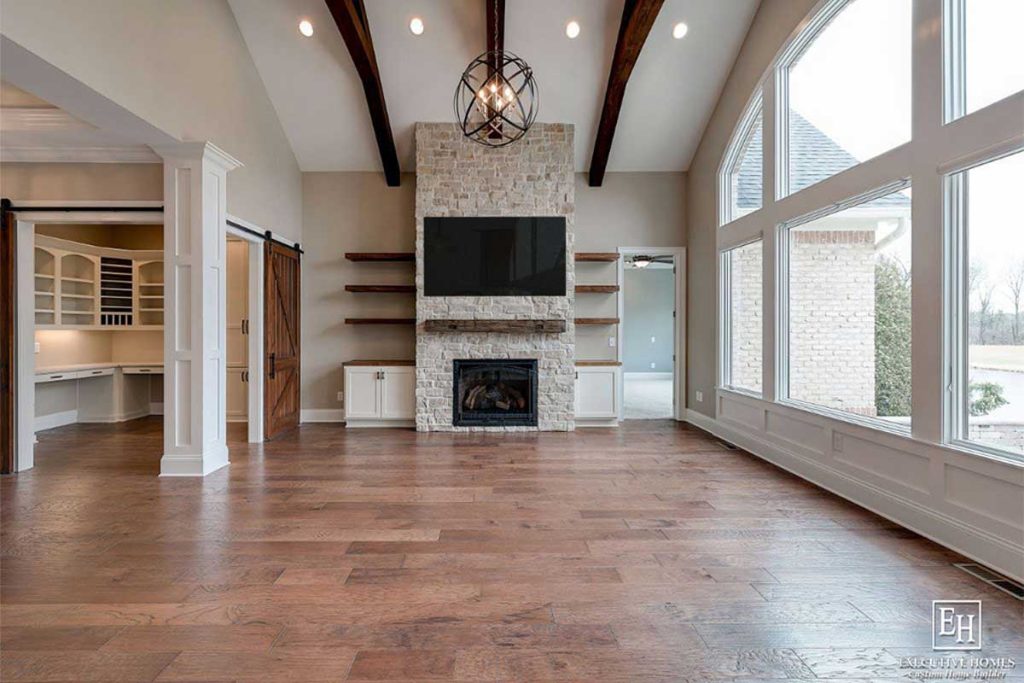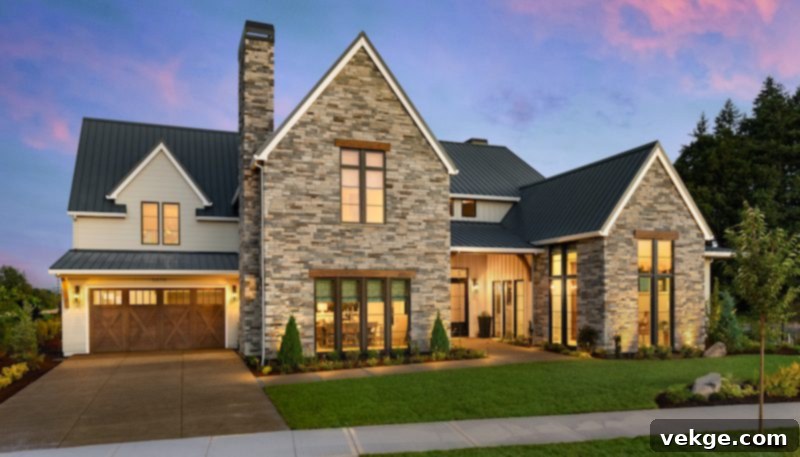The Ultimate Guide: How to Choose the Best Custom Home Builder for Your Dream Home
Embarking on the journey to build a custom home is undoubtedly one of the most exciting and significant ventures a person can undertake. It’s a chance to bring your unique vision to life, creating a space that perfectly reflects your lifestyle, tastes, and future aspirations. However, the success of this monumental project hinges on a series of critical decisions, none more paramount than selecting the right custom home builder. The right builder doesn’t just construct a house; they act as a trusted partner, translating your abstract dreams into tangible reality, often within a reasonable budget and timeline. Conversely, choosing the wrong builder can transform this exciting chapter into a costly, stress-filled, and ultimately disappointing experience, fraught with delays, budget overruns, and compromised quality.
Given the considerable investment of time, emotion, and capital at stake, approaching the evaluation and selection process for custom home builders with meticulous diligence and informed care is not just advisable—it’s essential. Whether you’re searching for custom home builders in Sydney or anywhere else in the world, the core principles remain the same. This comprehensive guide will equip you with five indispensable tips to navigate this crucial decision, ensuring you find a builder who will not only meet but exceed your expectations, turning your dream home into a truly exceptional reality.
1. Clearly Define Your Vision and Specific Needs

Before you even begin interviewing potential custom home builders, the most critical first step is to thoroughly define what you envision for your new home. This isn’t just about surface-level preferences; it’s about delving deep into your lifestyle, habits, and long-term goals. Start by outlining the fundamental aspects:
- Spatial Requirements: How many bedrooms and bathrooms do you need, considering current family size and future plans? Think about the functionality of each space—do you need a luxurious master suite with a spa-like bathroom, or practical, kid-friendly spaces?
- Living Spaces: What types of living areas are essential? A formal dining room, an open-concept great room, a cozy family den, a dedicated media room, or a functional mudroom? Consider how these spaces will be used and how they flow into one another.
- Layout Preferences: Do you prefer a single-story design for accessibility and ease, or a multi-story home for separated living zones? What kind of privacy do you desire between public and private areas?
Beyond the basics, move on to essential features that elevate a house into your ideal home. This is where your unique personality and priorities come into play:
- Eco-Friendly & Sustainable Living: Are you committed to environmental responsibility and energy efficiency? This could involve integrating solar panels, rainwater harvesting systems, high-efficiency HVAC, superior insulation, or smart home technologies for energy management.
- Dedicated Workspace: In today’s hybrid work environment, a dedicated office space is often non-negotiable. Consider aspects like soundproofing, ample natural light, built-in storage, and robust internet connectivity.
- Specialized Rooms: Do you dream of a gourmet kitchen with professional-grade appliances, a home gym, a spacious pantry, a wine cellar, or an art studio? List every specific feature that will enhance your daily life.
- Accessibility: For long-term living or specific needs, consider features like wider doorways, zero-entry showers, ramps, or elevator provisions.
Furthermore, carefully consider the construction materials and architectural style that align with your design preferences and performance expectations. Not all builders specialize in all styles or materials. For instance, you might be interested in modern farmhouse aesthetics, a contemporary minimalist design, or a classic traditional look. Your choice of materials will significantly impact the home’s aesthetics, durability, and energy performance. This could include exploring innovative options like SIPs (Structural Insulated Panels) for superior insulation, triple-paned windows for enhanced thermal efficiency and sound reduction, specific types of roofing, flooring materials, and exterior finishes. Creating a detailed list of these preferences will allow you to find a builder whose portfolio demonstrates expertise in similar projects or who can confidently guide you in incorporating these elements into your overall custom home design.
2. Thoroughly Research Each Builder’s Reputation and Portfolio
Once you have a clear vision of your custom home, the next crucial step is to meticulously research the reputation and track record of prospective builders. A builder’s past projects and client experiences offer invaluable insights into their quality of work, professionalism, and ability to deliver on promises. Look beyond just glowing endorsements; understanding how a builder handles challenges and complaints can be just as, if not more, informative.
- Online Reviews and Ratings: Start your research on widely used platforms such as Google Reviews, Yelp, and specialized home improvement sites like Houzz. These platforms often provide unfiltered feedback from previous clients, detailing their experiences with communication, project management, quality of work, and adherence to budget and timeline. Pay attention to recurring themes, both positive and negative.
- Professional Organizations & Local Resources: Check with local builder associations (e.g., National Association of Home Builders), the Better Business Bureau (BBB), and local online forums or community groups. These sources can offer additional perspectives and highlight any unresolved disputes or commendations.
- Builder’s Portfolio: Always request a comprehensive portfolio of their completed custom home projects. This is where you assess if their design aesthetic and construction quality align with your vision. Ideally, you want to see evidence of their experience working with design styles, sizes, and home layouts that are similar to what you envision. Look for details in their craftsmanship, the materials used, and the overall finish. Do their projects reflect attention to detail and high-quality standards?
- References from Past Clients: Don’t hesitate to ask for a list of recent clients (preferably from projects completed within the last 1-3 years) and make the effort to contact them. When speaking with references, ask specific questions:
- Was the project completed on time and within budget?
- How was the communication throughout the build? Were they responsive and transparent?
- How did the builder handle unexpected issues or changes?
- Are they satisfied with the quality of the workmanship and materials?
- Would they hire this builder again or recommend them to a friend?
- Did the builder provide good post-completion support for any warranty issues?
- Site Visits: If possible, ask if you can visit a current or recently completed project (with the client’s permission). This provides a firsthand look at their construction practices, site organization, and the quality of their finished product.
By conducting this thorough research, you’ll gain a comprehensive understanding of each builder’s capabilities, reliability, and the overall experience they provide to their clients.
3. Verify Licenses, Insurance, and Comprehensive Contracts

This critical step often gets overlooked but carries significant legal and financial consequences if not handled properly. Hiring a home builder or contractor who lacks the proper licenses and insurance is a major risk that can expose you to liability, project delays, and even legal action. For instance, in many places like California, it’s illegal to hire unlicensed contractors for projects exceeding a certain value. Always verify the following with every prospective builder:
- License Status: Confirm that the builder holds a current and valid contractor’s license in your state or region. This can usually be done through your state’s contractor licensing board website. A license indicates that the builder has met certain experience, knowledge, and financial responsibility requirements.
- Insurance Policies:
- General Liability Insurance: This protects you from damages to your property, or injury to a third party, caused by the builder or their subcontractors during construction. Ensure the coverage limits are sufficient for the scope of your project.
- Worker’s Compensation Insurance: This is crucial. If a worker is injured on your property and the builder doesn’t have worker’s comp, you, as the homeowner, could be held liable for medical expenses and lost wages.
Always ask for copies of their insurance certificates directly from their insurance provider, not just from the builder, to confirm validity and coverage.
- Bonding: While not always mandatory for residential projects, a builder’s bond provides an extra layer of financial protection. A bond is a safeguard in the event the builder fails to complete the job to the agreed-upon terms, abandons the project, or fails to pay subcontractors or suppliers. It ensures that you have recourse to recover costs or complete the project if the builder defaults on their contract.
Beyond these essential verifications, a robust and comprehensive contract is your legal blueprint for the entire project. Before signing anything, ensure the contract clearly outlines:
- The full scope of work, including detailed specifications and materials.
- A precise payment schedule tied to specific milestones.
- A clear process for change orders (how they are requested, approved, and how they impact cost and timeline).
- A detailed warranty for workmanship and materials.
- Dispute resolution mechanisms.
- Start and estimated completion dates.
It is highly recommended to have an independent legal professional review the contract before you sign to protect your interests and ensure all expectations are clearly documented.
4. Prioritize Clear and Consistent Communication
The success of your custom home build will heavily depend on the quality of communication and transparency provided by your builder. A strong, collaborative client-builder relationship is built on open and honest dialogue. The level of communication a builder offers from the initial consultation through to the final walk-through can truly make or break your entire experience.
In your initial meetings, pay close attention to how the builder communicates and, just as importantly, how they listen to your needs and vision. Are they engaged, asking thoughtful questions to understand your desires, or do they seem distracted or dismissive? Observe their communication style:
- Responsiveness: How quickly do they respond to your inquiries? Are their answers thorough and clear, or are they vague and hurried?
- Clarity and Thoroughness: Do they explain complex construction processes, costs, and timelines in an understandable manner? Are they proactive in discussing potential challenges or offering solutions before problems escalate?
- Consultative Approach: A good builder acts as a consultant, offering expert advice, alternative solutions, and insights into design and material choices, rather than simply agreeing to everything you say without critical evaluation.
- Transparency: Are they upfront about potential costs, timelines, and any possible issues that might arise? A transparent builder will discuss both the exciting possibilities and the realistic limitations of your project.
If a builder seems to beat around the bush when discussing critical details like pricing, project timelines, or their specific construction processes, consider it a significant red flag. This lack of transparency in the early stages can often foreshadow larger communication issues and frustrations down the line.
Throughout the project, effective communication will involve:
- Regular Updates: Discuss how and how often they will provide updates on progress, budget, and schedule. Will it be weekly meetings, phone calls, or through project management software?
- Preferred Methods: Establish preferred communication methods. Some clients prefer email for documentation, others appreciate a quick phone call, and many benefit from dedicated project management software that tracks progress, documents decisions, and manages change orders.
- Problem Solving: Inevitably, unexpected issues will arise during construction. A good builder will communicate these challenges promptly, explain the implications, and propose clear, actionable solutions, rather than hiding problems or making unilateral decisions.
- Decision Making: Ensure there’s a clear process for decision-making and approvals, especially for items that may impact the budget or timeline.
A builder who values clear and consistent communication fosters a relationship of trust and ensures that you remain informed and involved every step of the way, making the custom home building experience far more enjoyable and successful.
5. Align Your Budget and Timeline with Realistic Expectations

Budget overruns and missed deadlines are among the most common sources of frustration in custom home building. These issues, however, are often avoidable if you and your custom home builder establish a clear alignment on financial parameters and project timelines from the outset.
- Detailed Cost Estimates: Insist on a comprehensive and detailed cost estimate based on the specific design of your home. A good estimate should break down costs for every phase, including:
- Labor and materials (with specific allowances for items like fixtures, flooring, and cabinetry).
- Permits and fees.
- Site preparation and utilities.
- Architectural and engineering fees.
- Allowances for items where final selections are yet to be made.
Be wary of overly optimistic estimates that seem significantly lower than others, as they often hide hidden costs. Also, be suspicious of estimates that lack detailed backup or seem too vague.
- Realistic Timeline Planning: Building a custom home involves multiple complex steps, from initial design and permitting to foundation, framing, rough-ins, finishes, and landscaping. Ask your builder for a solid understanding of their process for creating a detailed timeline. How do they plan to stick to it? What are the key milestones? What flexibility do they provide for unexpected delays caused by weather, material shortages, or inspection backlogs?
- Contingency Planning: Even with the most meticulous planning, unforeseen issues can and often do arise during construction. A crucial element of responsible budgeting is allocating a contingency fund, typically 10-20% of your total construction budget. This fund acts as a buffer for unexpected costs, such as unforeseen site conditions, material price increases, or desired upgrades during the build. Discuss with your builder how they handle such contingencies and what common issues they anticipate might come up during a project of your home’s scope.
- Change Order Process: Understand your builder’s clear and transparent process for handling “change orders.” These are modifications to the original plan that occur after construction has begun. How will changes be requested, documented, approved, and how will they impact both the budget and the timeline? A clear process prevents misunderstandings and unexpected costs.
By thoroughly discussing and aligning on budget and timeline expectations with your builder, you lay the groundwork for a project that remains financially viable and proceeds with predictable progress, reducing stress and ensuring greater satisfaction.
Conclusion: Your Partner in Building a Legacy
Building a custom dream home is far more than just a construction project; it’s a monumental undertaking, an emotional investment, and the creation of a personal legacy. It’s a journey that is equal parts challenging and incredibly rewarding, culminating in a space perfectly tailored to your life. The decisions you make now, especially regarding your choice of custom home builder, will profoundly impact this journey and the final outcome.
By diligently following these five essential tips – meticulously defining your vision, thoroughly researching reputations, verifying licenses and insurance, prioritizing clear communication, and aligning on realistic budgets and timelines – you empower yourself to make an informed and confident decision. Remember, the builder you choose will not merely construct the physical structure of your home; they will be your dedicated partner and guide through one of the biggest and most personal milestones in your life. Selecting the right one ensures that your custom home building experience is as smooth, satisfying, and successful as the beautiful home you’ll ultimately inhabit.
